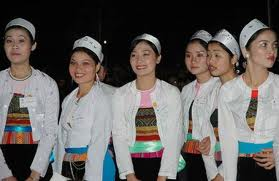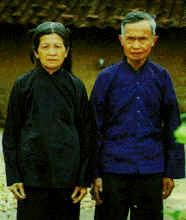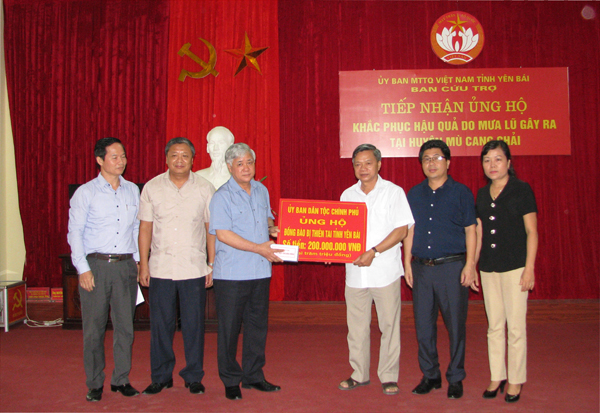In 1989 census, the Ngai population was 1,154 inhabitants who settled in Quang Ninh, Ha Bac, Lang Son, Cao Bang, Bac Thai and Ho Chi Minh City. Ngai community has other names such as Ngai Hac Ca, Sin, Le, Common denomination is San Ngai (meaning mountaineers). Ngai language belongs to the Han Group.
The Ngai live mainly on rice cultivation. Those who live in sea islands or along the coastal regions mainly engage in fishing. The Ngai traditionally used to dig canals, build dams and water reservoirs and reinforce sea dykes, Mat-making, bamboo screen making, blacksmithing, carpentry, lime, tile and brick-baking are their sideline occupations.
The Ngai wear costume in the same way with the Hoa (or Han), They always wear various kinds of hats made from palm, leaves and rattan, or put on scarves and umbrellas.
The Ngai villages constantly settle on the hillsides, in valleys or along the coast and on islands. The house consists of three compartments and two lean-tos. Patriarchy is the main rule in a family. The boys are respected by all members of the family. The girls are not divided inheritance after her parents' death. She must come to live in her husband's house after marriage.
In the past, Ngai young people must sit wherever their parents placed. Marriage comprises two steps : wedding and nuptial rite. The boy's family always chooses a girl for their son. When in pregnancy, Ngai women must practice carefully many taboos: not eating snail, beef, goat and sewing or buying clothes. Sixty days after the first birth and 40 days with second birth and so on that the woman is permitted to come back to visit her parents' home.
It is customary that if person dies, funeral is carefully organized. After the burial, a rite is continuously held on the 21st day, 35th day, 42nd day, 49th day, 63rd day and 70th day. Three years later, another rite will be held to leave off mourning.
The Ngai have great respect for ancestor worship, so do for the souls and genies. All families have ancestor altars, all hamlets have temples and pagodas built. Confucianism, Taoism and Buddhism have deeply influenced the life of the Ngai people.
The Ngai preserve love duet called suong co, a rich cultural activity. The young couples can sing in five to seven consecutive night that the verses are not repeated. In their proverbs and sayings, the advices of production experience and ways of living can be found. Other entertainments are much liked by the people including lion-dance, stick-dance and fellow-my-leader game.





